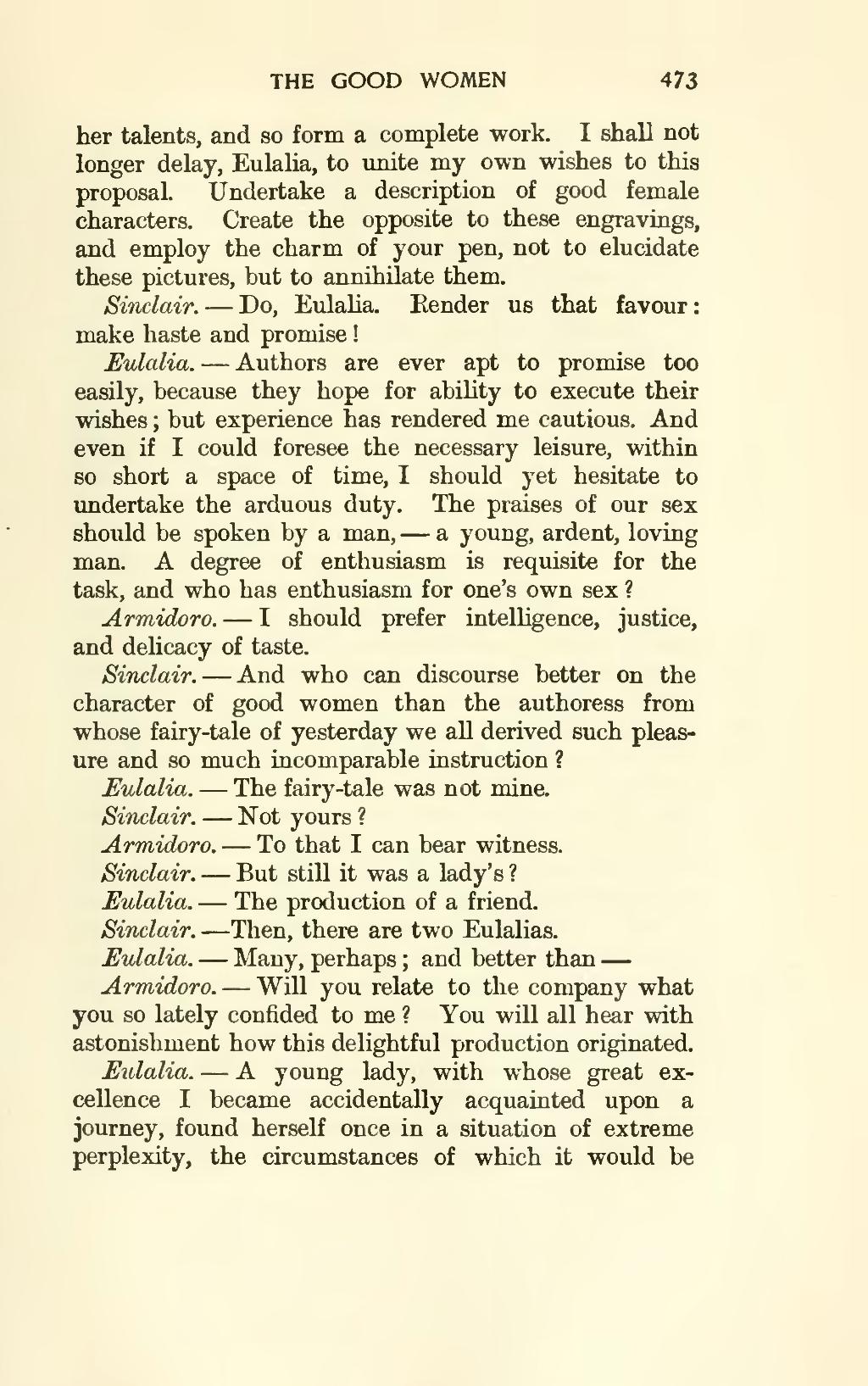her talents, and so form a complete work. I shall not longer delay, Eulalia, to unite my own wishes to this proposal. Undertake a description of good female characters. Create the opposite to these engravings, and employ the charm of your pen, not to elucidate these pictures, but to annihilate them.
Sinclair.—Do, Eulalia. Render us that favour: make haste and promise!
Eulalia.—Authors are ever apt to promise too easily, because they hope for ability to execute their wishes; but experience has rendered me cautious. And even if I could foresee the necessary leisure, within so short a space of time, I should yet hesitate to undertake the arduous duty. The praises of our sex should be spoken by a man,—a young, ardent, loving man. A degree of enthusiasm is requisite for the task, and who has enthusiasm for one's own sex?
Armidoro.—I should prefer intelhgence, justice, and delicacy of taste.
Sinclair.—And who can discourse better on the character of good women than the authoress from whose fairy-tale of yesterday we all derived such pleasure and so much incomparable instruction?
Eulalia.—The fairy-tale was not mine.
Sinclair.—Not yours?
Armidoro.—To that I can bear witness.
Sinclair.—But still it was a lady's?
Eulalia.—The production of a friend.
Sinclair.—Then, there are two Eulalias.
Eulalia.—Many, perhaps; and better than—
Armidoro.—Will you relate to the company what you so lately confided to me? You will all hear with astonishment how this delightful production originated.
Eulalia.—A young lady, with whose great excellence I became accidentally acquainted upon a journey, found herself once in a situation of extreme perplexity, the circumstances of which it would be
